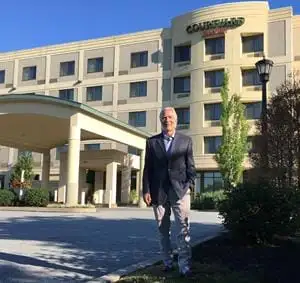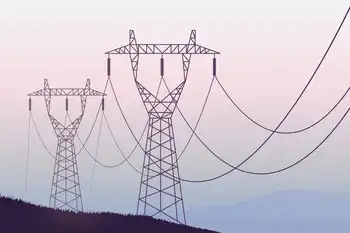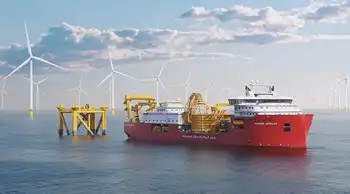New Head of Federal Energy Regulatory Commission Faces Daunting Task
- WASHINGTON--The Federal Energy Regulatory Commission (FERC) convenes in Seattle this week under the guidance of its new chairman, Pat Wood, a plain-spoken Texan with high hopes for more open power markets.
The hearing Friday on Western energy infrastructure is the first step in a nationwide assessment of whether there are enough power sources, plants and transmission lines to meet increasing demands.
It is also part of Wood's efforts to transform FERC from a lumbering bureaucracy into a trusted market monitor, and an agent for change.
"Rather than sit here and wait five years to look back and blame somebody, let's make sure we don't have a problem," Wood said.
In the wake of the California energy crisis that sent power prices skyrocketing throughout the West, Wood is keenly aware that the agency needs to regain the confidence of consumers, utilities and state officials before it can begin to encourage fundamental changes in energy markets.
"And what better way to do it than to go out to the middle of the region that's been through one of the toughest energy situations in decades and say, OK, we're not going to let this happen again," he said. "Ever."
FERC regulates the nation's wholesale-energy industries. As California's electricity restructuring unraveled beginning last winter, Western politicians, consumer advocates and others criticized FERC for doing too little, too late to restore market stability.
Political recriminations reverberated from Sacramento to Capitol Hill as prices rose throughout the West and the nation braced for a new energy crisis.
Consumers cut back on energy use and California entered into new long-term power agreements to avert summer blackouts.
Eventually, FERC empowered an administrative law judge to probe whether utilities engaged in price gouging. The basic flaw lay in California's deregulation plan, but in stark contrast to FERC's earlier statements, Wood, whom President Bush tapped to lead the agency in August, said the breakdown could have been prevented: FERC could have insisted on changes to the plan or stepped in as soon as prices began to go out of control. Curtis Hebert Jr. was then-chairman of the commission.
"FERC could have pulled the plug on that market flow earlier," Wood said. "We aren't ever going to let that happen again."
Wood served six years as chief regulator of the telecommunications and electric-power industries under then-Gov. Bush in Texas.
The California experience has cooled a push for more states to restructure their electricity markets by cutting regulations and promoting competition. Washington state has no immediate plan to deregulate.
But Wood, chief architect of the Texas restructuring plan, which won't be fully implemented until next year, is a firm believer in market efficiencies.
He points to the creation of the cell phone, which grew out of deregulation of the telephone industry, as an example of the unanticipated advances that can result from deregulation.
"The unleashed electron will more than eclipse what has happened with the telephone," he said.
Still, he is the first to say that deregulation can't happen until a stable market has been created, and he admitted that states will be reluctant to embrace deregulation until FERC has shown it can be a good market cop. Or, as he put it: "If we find people breaking rules then -- we cut their heads off."
Wood is a proponent of FERC's plan to push utilities into expansive regional-transmission organizations. Proponents of so-called RTOs say they will improve the efficiency of the power grid and improve reliability.
There is some resistance to the plan among states that see it as an increase in FERC jurisdiction at a time when doubts about its ability to regulate linger.
Wood said FERC already was backing away from the original plan to create four RTOs -- and from a timetable that would have seen establishment of the organizations this year -- because of concerns about volatility in the California market.
"Nobody wants to dance with California, and California doesn't want to dance with anybody," he said.
In the Northwest, where hydropower makes up about 40 percent of capacity on a peak day, Wood noted that electricity demand is increasing, and that providers are relying more and more on natural-gas resources.
Related News

Pennsylvania Home to the First 100% Solar, Marriott-Branded U.S. Hotel
LANCASTER, PA - High Hotels Ltd., a hotel developer and operator, recently announced it is installing a $1.5 million solar array that will generate 100% of the electrical power required to operate one of its existing hotels in Greenfield Corporate Center. The completed installation will make the 133-room Courtyard by Marriott-Lancaster the first Marriott-branded hotel in the United States with 100% of its electricity needs generated from solar power. It is also believed to be the first solar array in the country installed for the sole purpose of generating 100% of the electricity needs of a hotel.
“This is an exciting…




